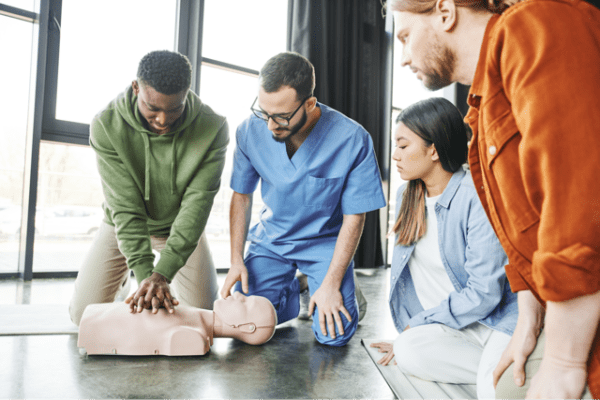
London, United Kingdom
From Classroom to Clinic: Essential Skills for Medicine
When:
21 July - 08 August 2025
Credits:
7.5 EC
Read more
Engineering & Medical School
When:
27 June - 26 July 2025
School:
Linköping University Summer Academy
Institution:
Linköping University
City:
Country:
Language:
English
Credits:
7.5 EC

As smartphones and similar devises have become ubiquitous in our society, they present a unique and unforeseen opportunity for scientific inquiry. These devises are, in essence, handheld computers that have several sensors (cameras, microphones, touch) and sources (LED flash, speakers, haptics) attached to them. While these sensors have been optimized to perform other functions, many also represent the base components for medical devices. This has led to an explosion of research efforts in the ”Low-Resource Settings” arena, which aims to bring scientific, investigational and medical devices to all corners of the globe and hence have the greatest societal impact by putting technology within the reach of everyone. The challenge however is to determine whether these devices are ”good enough” to make a positive impact or whether its over simplification can result in adverse events.
Students across many disciples are welcome in this course as the multidisciplinary, active learning methodology invites contributions from broad perspectives from problem definition and hypothesis development (Medicine and Biology), device design, implementation, and interpretation (Engineering and basic sciences), as well as ethics and societal impact (humanities).
The course is given within the framework of the Linköping University Summer Academy and is only open to students from Linköping University's partner universities. The course is on bachelor level and is offered in English.
To meet the general entry requirements, students must have completed one year of full-time studies upon application (passed 60 ECTS credits or equivalent) and be nominated by one of LiU’s partner universities.
The overall aim of this course is to give students an introduction to how optical imaging and sensing techniques can be developed for medical detection and monitoring applications. Ethical questions will be discussed, such as whether the consequences of reducing costs and increasing access to these devices can meet these actual needs and demands of all individuals in the greater society.
After completing the course, the student should be able to:
- Describe the principle of operation of multiple (optical) imaging and sensing technologies utilized in healthcare (current and emerging) and how these relate to physiology
- Relate how the core elements of these medical devices can be found in (or added to) sensors and sources embedded in ubiquitous, commercially available platforms such as smartphones, tablets, etc.
- Assess how clinical specific needs could be addressed through these low-resource platforms and leverage their performance against the diversity of other clinical challenges and patient population diversity
- Generate hypotheses and simple experimental methods to evaluate and test the operation of these systems
- Identify current limitations, future expertise, and understanding necessary to further this introductory experience towards more practical device designs and more robust medical indications. (i.e. ”next steps”)
When:
27 June - 26 July 2025
School:
Linköping University Summer Academy
Institution:
Linköping University
Language:
English
Credits:
7.5 EC

London, United Kingdom
When:
21 July - 08 August 2025
Credits:
7.5 EC
Read more

Wroclaw, Poland
When:
07 July - 25 July 2025
Credits:
4 EC
Read more

Aachen, Germany
When:
22 June - 05 July 2025
Credits:
3 EC
Read more